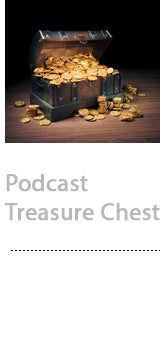Spotify said Wednesday in a blog post it would acquire podcast production network Gimlet Media and podcast creation, distribution and sponsorship platform Anchor. Terms of the deal were not disclosed, but sources pegged the price at roughly $230 million.
If that estimate is correct, it’s the most high-value acquisition of a podcast network or platform by an audio distributor. IHeartMedia bought Stuff Media for $55 million in September, and EW Scripps bought Midroll, now under Stitchr, for $50 million in 2015.
Gimlet, founded in 2014 by former journalist and public radio producer Alex Blumberg and ex-BCG exec Matthew Lieber, produces hit shows like “Reply All” and “Crimetown.” The network reaches roughly 12 million people and has raised $28.5 million in funding.
Anchor, founded in 2015, allows anyone to record, distribute, publish and monetize podcasts and has raised $14.5 million in funding.
The high multiple Spotify paid for both companies signals that the digital audio platform is serious about becoming a major player in the podcasting space. Spotify began adding podcasts in 2015 and has quickly become the second largest distributor behind Apple.
Spotify sees non-music content making up 20% of its listening over time, CEO Daniel Ek said on the company’s Q4 earnings call Wednesday. Podcast listeners engage twice as much with the platform and listen to more music.
“That content is bringing new users to the platform, but it’s also very attractive to the people who are already using Spotify,” Ek said. “If they’re engaging more, that drives a virtuous cycle.”
The company has earmarked $400 million to $500 million for additional acquisitions that are “more likely than not” going to be in the podcast space, said CFO Barry McCarthy.
Podcast treasure trove
Regarded as one of the most high-caliber production companies in the industry, Gimlet makes Spotify a credible podcast developer, and gives it a high-value and loyal audience.
“It brings in new listeners to Spotify and gets people associating them with premium podcasts,” said Dan Granger, CEO of podcast agency Oxford Road.
Spotify also inherits Gimlet’s experienced podcast creatives and producers, expertise the platform didn’t have before.
“It’s hard to consistently make good podcasts,” said Bryan Moffett, COO at NPR sponsorship arm National Public Media. “Gimlet has snapped up a lot of people in the industry who are excellent at that.”
And with Anchor, Spotify has an opportunity to grow its long tail of podcast content and advertisers by allowing anyone to upload, distribute and monetize through its platform.
“Spotify now has a full-stack podcasting solution, encompassing every piece of the value chain,” said Owen Grover, CEO of podcast player Pocket Casts.
Gimlet and Anchor also add to Spotify’s marketing capabilities. The Gimlet Creative studio develops branded podcasts for premium advertisers like Google, Casper and Ford, while Anchor Sponsorships helps smaller podcast producers connect with brands.
“Spotify for Brands is a great organization but they don’t have the expertise in making podcasts,” Moffett said.
Spotifying new licensing revenue
Gimlet’s hit podcast “Homecoming” got picked up as an Amazon Prime drama starring Julia Roberts in November 2018. Deals like that can be lucrative not only if they turn into hits, but if they draw more awareness to the podcasting space, said Marshall Williams, CEO of podcast agency Ad Results Media.
“The barrier to entry for podcasting is so low,” he said. “If they own the content and it becomes a Netflix or HBO special, that’s an additional revenue stream.”
Spotify will experiment with new distribution strategies for podcasts that drive more listeners to its platform. While Spotify won’t make any of Gimlet or Anchor’s current shows exclusive to its platform, it plans to develop new exclusive shows in addition to the 14 it already has.
Similar to the video on demand landscape, it’s a strategy many in the podcast industry are exploring as the competition heats up.
“Exclusives is definitely an important part of our strategy,” Ek said.
Spotify is smart not to box out Gimlet’s large and “fairly rabid” fanbase from its content too soon, Moffett said.
“I would imagine there are listeners who are skeptical,” he said. “They’re not Spotify users and the notion that they now have to become a Spotify user or paid subscriber, we’ll have to see how that shakes out. That hasn’t been tried at scale.”
Challenges ahead
While Spotify can improve targeted messaging on Gimlet’s podcasts, it will have to be careful about over-targeting, as the audience for podcasts still isn’t large enough to get super granular.
In other words, it’s a lot of squeeze for not a lot of juice, Granger said.
“Podcasting is so fragmented still that whenever you take slices of slices of slices, you don’t get enough audience,” he said. “Your price goes up and audience volume goes down and you’re not dealing with sample sizes where you can afford to do that in a meaningful way.”
Regardless of how Gimlet and Anchor end up fitting into Spotify’s network, the deal signals that the land grab to become the second-biggest distributor of podcast content behind Apple is on.
“iTunes’ 90-something share of the podcast listening continues to be eroded because it has no exclusive claim on anything,” Granger said. “Spotify, Pandora and iHeartMedia are going to keep chipping away at the reason to go to Apple podcasts. Gimlet is going to give Spotify an edge over other platforms.”
Spotify posted revenue growth in Q4 of 30% to $1.7 billion. Ad revenue was up 34% to roughly $200 million, with both video and audio ad spend up 40% in the quarter. Monthly active users grew 29% year over year to 236 million, and average revenue per user was $5.59.













